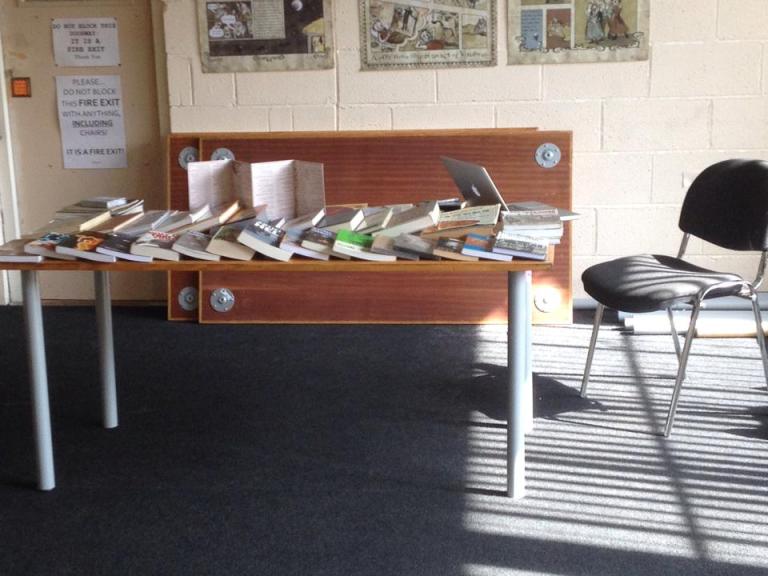Today has been a good day.
It’s also been a very busy day, which is why I’m writing this at my kitchen table with a Maccies’ milkshake trying to desperately beat a self-imposed midnight deadline. I spent my morning running my Incredible Ever-Condensing Hope Street Limited Library, giving my fellows advice on where to look for their own research, and my afternoon and evening working on musical projects in various far-flung corners of Everton (and even managed to sneak in some writing of my own, which hasn’t happened in ages). Basically, today’s been my first proper taste of being a working dramaturg.
At this point I have to address a question I’m almost certain you’re asking: What on earth is a dramaturg? Truth be told, I’m still asking that myself.
The difficult thing about describing the role of a dramaturg is that nobody agrees on what a dramaturg’s role actually is. From what I’ve found out by doing some reading around the role, every dramaturg has their own definition of what their role is, and I get the feeling that every show has a different role for a dramaturg (and, of course, lots of shows have no need for them at all).
The role of dramaturg (in its modern form) was developed by Gotthold Lessing in the eighteenth century, as a kind of ‘font-of-all-knowledge’ about the historical background of plays and operas. Of course, the eighteenth century was a long time ago, and things have changed a fair bit since then. For a lot of people – especially those who don’t work with dramaturgs – it’s still a predominantly research-based role; another definition common amongst dramaturgs themselves is that it focuses on advising the development of new works for the stage. Some dramaturgs see their role as being the representation of the author in the production, whilst others consider themselves ‘designated outsiders’, people who offer different perspectives on shows. And some people consider it an ever-changing grab-bag of whatever roles other people didn’t want, a kind of ‘odd-job man’ of the production team.
So, with that in mind, here’s my definition of ‘the dramaturg’s role’: to ensure the coherence and cohesiveness of a production. That means research, definitely, and also probably taking on a lot of odds and ends that don’t quite fall into anyone else’s job remit but nonetheless need doing to make sure the production works. It means I may occasionally have to stand up to the other members of the production if something they really want doesn’t work, and that I will basically turn into a massive continuity geek over the next month. Well, I say ‘turn into’. I mean ‘unleashing the slathering continuity-porn addict that lurks deep within my psyche, usually shackled with shatterproof bonds to prevent him ruining Discworld for me’.
If you’re reading this, and you think I’ve completely missed the point of dramaturgy, drop a note in the comments section. I fancy having a lively debate about this (a lively debate is probably the last thing I need right now, but to hell with stupid niggling things like necessities).
